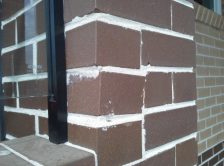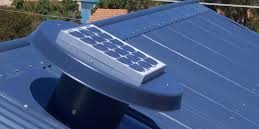
Going Green - Top 10 Tips for Eco Living
By HOUSPECT Building and Pest Inspections|May 30, 2019
Going green is no longer simply a preference; it has become a matter of conscience. It is no secret that human activity has greatly contributed to increased levels of carbon dioxide and other greenhouse gases. Homeowners can take steps to help reduce their carbon-footprint by adapting green construction practice when building a new home or renovating. Here are ten top tips for eco living in South Australia.
Reduce Energy Consumption
Partly thanks to the invention of the standby features, homes all over the world are consuming energy unnecessarily when devices are not in use. The reliance on the standby setting on your TV and other electronics is the first habit to break. Turning devices off completely will save on energy consumption and, by extension, reduce your energy costs.
Smart Technology
If you are building or making changes in a home, consider investing in smart technology. Energy efficient controls that automate energy consumption can dramatically reduce the impact that electronic devices have on energy bills. Think of these features as standby 2.0, where devices cut off the supply of power or regulate energy use in a more efficient way.
Use Compost
A large amount of methane gas is produced from food waste that goes to landfills. You can do your part by using food waste for compost. This practice will provide you with a free source of fertilizer and is friendlier to the environment.
Increase Recycling
Waste not, want not. You should endeavour to recycle everything that you can. If you are unsure whether an item can be safely and effectively recycled, you can find useful information on government websites.
Plastic Depopulation
Plastic is one of the most useful and multipurpose materials ever invented. Unfortunately, it is also extremely detrimental to the environment in many ways. Strive to rid your life of plastic in as many ways as you can. Stop using disposable plastic bags by switching to biodegradable options that are kinder to the environment. You can also get into the habit of carrying reusable, eco friendly shopping bags when you go to the shops, coffee cups for your daily caffeine fix and drink bottles when heading out for the day.
Effective Insulation
Do you know if your home is adequately insulated? If not, make a point of having an inspection carried out. Effective insulation will keep a home warm in winter and cool in summer, dramatically reducing the amount of energy you consume.
Maintenance & Repairs
When you own a home, make a point of scheduling regular maintenance. If something is broken, fix it rather than adding more trash to the already unmanageable landfills. If you aren’t necessarily handy with repairs, consider repurposing or up-cycling broken items.
Energy Efficient Doors & Windows
Doors and windows that are rated as energy efficient can help to reduce your carbon footprint by slashing energy consumption. The upfront cost of installing energy efficient doors and windows may put a dent in your wallet, however, you should find the long-term benefits are worth the initial cost.
Passive Building Design
If you are building a new property or adding an extension to an existing home, consider passive building design. Elements of design that promote efficient airflow, heat distribution, and optimum levels of natural light can come together to make your home more eco friendly.
Reduce Water Consumption
We use way too much water in the South Australia – especially at the height of summer. There are a number of steps you can take to reduce water consumption, when going green. Use a yard brush rather than a hose to wash debris from pathways. Reduce shower time and avoid filling sinks to wash dishes. Also make sure to take advantage of eco settings on washing machines and dishwashers.
Reduce Energy Consumption
Partly thanks to the invention of the standby features, homes all over the world are consuming energy unnecessarily when devices are not in use. The reliance on the standby setting on your TV and other electronics is the first habit to break. Turning devices off completely will save on energy consumption and, by extension, reduce your energy costs.
Smart Technology
If you are building or making changes in a home, consider investing in smart technology. Energy efficient controls that automate energy consumption can dramatically reduce the impact that electronic devices have on energy bills. Think of these features as standby 2.0, where devices cut off the supply of power or regulate energy use in a more efficient way.
Use Compost
A large amount of methane gas is produced from food waste that goes to landfills. You can do your part by using food waste for compost. This practice will provide you with a free source of fertilizer and is friendlier to the environment.
Increase Recycling
Waste not, want not. You should endeavour to recycle everything that you can. If you are unsure whether an item can be safely and effectively recycled, you can find useful information on government websites.
Plastic Depopulation
Plastic is one of the most useful and multipurpose materials ever invented. Unfortunately, it is also extremely detrimental to the environment in many ways. Strive to rid your life of plastic in as many ways as you can. Stop using disposable plastic bags by switching to biodegradable options that are kinder to the environment. You can also get into the habit of carrying reusable, eco friendly shopping bags when you go to the shops, coffee cups for your daily caffeine fix and drink bottles when heading out for the day.
Effective Insulation
Do you know if your home is adequately insulated? If not, make a point of having an inspection carried out. Effective insulation will keep a home warm in winter and cool in summer, dramatically reducing the amount of energy you consume.
Maintenance & Repairs
When you own a home, make a point of scheduling regular maintenance. If something is broken, fix it rather than adding more trash to the already unmanageable landfills. If you aren’t necessarily handy with repairs, consider repurposing or up-cycling broken items.
Energy Efficient Doors & Windows
Doors and windows that are rated as energy efficient can help to reduce your carbon footprint by slashing energy consumption. The upfront cost of installing energy efficient doors and windows may put a dent in your wallet, however, you should find the long-term benefits are worth the initial cost.
Passive Building Design
If you are building a new property or adding an extension to an existing home, consider passive building design. Elements of design that promote efficient airflow, heat distribution, and optimum levels of natural light can come together to make your home more eco friendly.
Reduce Water Consumption
We use way too much water in the South Australia – especially at the height of summer. There are a number of steps you can take to reduce water consumption, when going green. Use a yard brush rather than a hose to wash debris from pathways. Reduce shower time and avoid filling sinks to wash dishes. Also make sure to take advantage of eco settings on washing machines and dishwashers.



